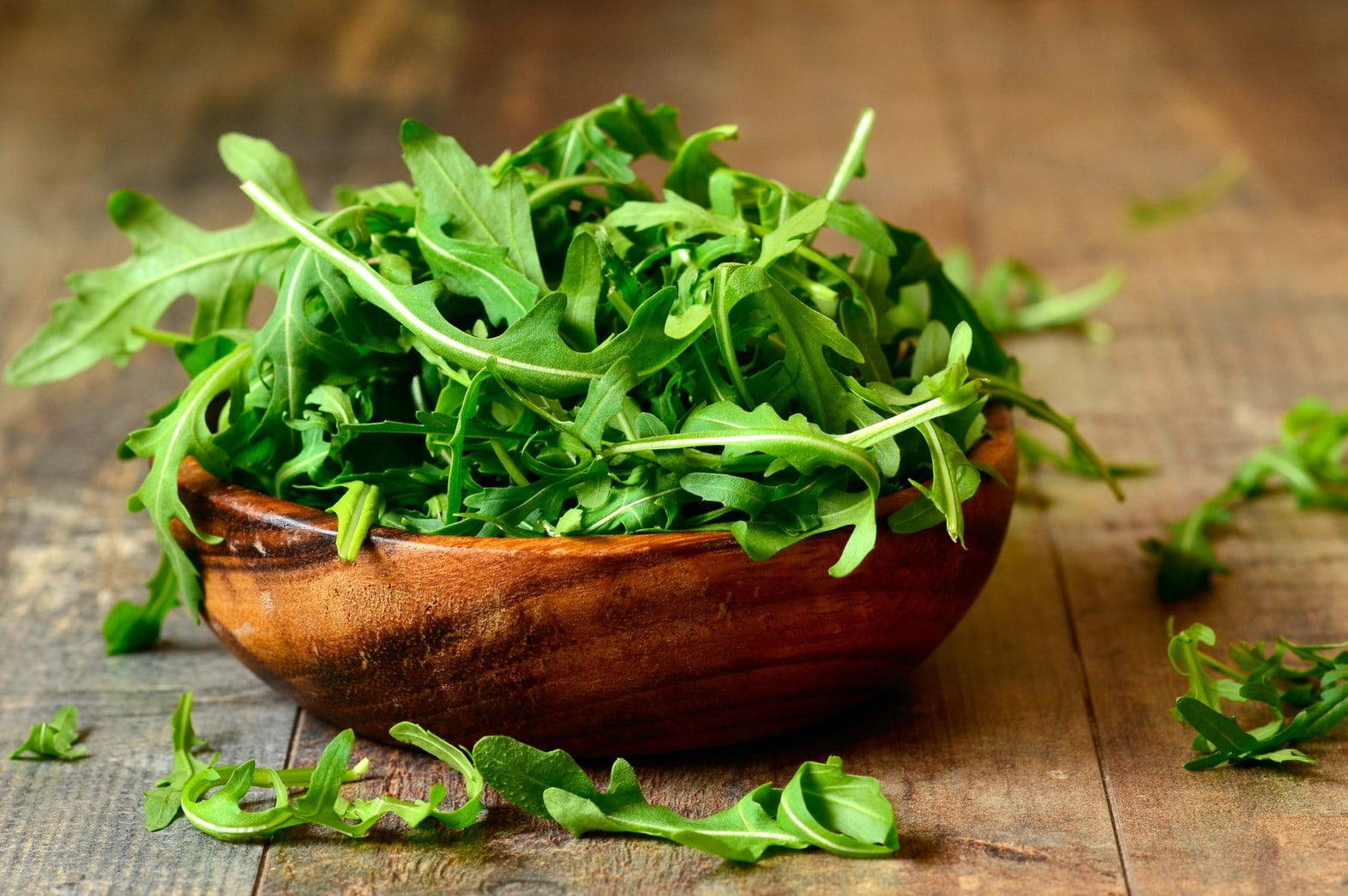
Rocket, commonly known as arugula, is a leafy green celebrated for its peppery taste and impressive nutritional profile. Originating from the Mediterranean, this vegetable has found its way into global cuisine, offering a burst of flavor and numerous health benefits. Rocket is a member of the Brassicaceae family, closely related to broccoli and kale, and is rich in vitamins, minerals, and antioxidants that support bone health, immunity, and more. Here, explore 20 key facts about rocket, from its culinary uses to its health-boosting properties, and learn why it deserves a spot in your diet.
Key Takeaways:
- Nutritional Powerhouse: Rocket is low in calories but rich in essential vitamins and minerals, particularly vitamins A, C, and K, as well as antioxidants. Its nutrient profile supports bone health and may help reduce the risk of chronic diseases, including certain cancers.
- Culinary Versatility: With its distinctive peppery flavor, rocket can be enjoyed raw in salads, blended into sauces like pesto, or lightly cooked in various dishes. Its adaptability makes it a popular ingredient in many cuisines, especially Mediterranean dishes.
Scientific Background and Characteristics
Rocket, classified scientifically as Eruca sativa, shares a family with other nutrient-dense vegetables like kale and broccoli. This section introduces rocket’s taxonomy, unique traits, and flavor profile.
1. Part of the Brassicaceae Family
Rocket belongs to the Brassicaceae family, making it a relative of broccoli, kale, and cauliflower. Its botanical name is Eruca sativa.
2. Mediterranean Roots
Rocket is native to the Mediterranean region, thriving in temperate climates but grown worldwide today due to its popularity.
3. Distinctive Flavor
Rocket’s peppery, slightly bitter taste sets it apart from other greens. Its bold flavor makes it a popular choice in salads, pastas, and garnishes.
4. Physical Features
Rocket grows between 20 and 100 cm tall and has distinctively lobed, deep green leaves. White flowers with purple veins make it visually striking in gardens.
Nutritional Powerhouse
Rocket provides significant health benefits, particularly as a low-calorie source of vitamins, minerals, and antioxidants. Here’s a closer look at what makes it a nutritional powerhouse.
5. Low in Calories
With only about 28 calories per 100 grams, rocket is ideal for calorie-conscious individuals without compromising nutritional density.
6. Packed with Vitamins
Rocket contains vitamins A, C, and K, supporting vision, immune health, and blood clotting, respectively.
7. Rich in Folate
A great source of folate, rocket is beneficial for cell function and particularly valuable for pregnant individuals.
8. High in Essential Minerals
Minerals like calcium, potassium, and magnesium in rocket aid in bone health, heart function, and nerve transmission.
Health Benefits and Antioxidant Properties
Beyond its nutrients, rocket is known for its potential to protect against chronic diseases and support overall health. Learn about its potential role in disease prevention and wellness.
9. Supports Bone Health
Rocket’s vitamin K content helps the body absorb calcium, promoting strong bones and possibly reducing the risk of osteoporosis.
10. Cancer-Fighting Potential
Studies link the glucosinolates in rocket with a reduced risk of cancers, especially in the lungs and colon.
11. Antioxidant-Rich
Packed with antioxidants, rocket helps protect cells from oxidative stress and may reduce the risk of various chronic conditions.
12. Immune System Support
Vitamin C, a potent antioxidant found in rocket, boosts immune function and helps the body combat infections.
Versatile Culinary Applications
Rocket’s bold flavor and tender texture make it a versatile ingredient. This section covers various culinary uses for rocket in dishes from salads to soups.
13. Raw in Salads
Rocket’s peppery leaves add an exciting kick to salads, pairing well with ingredients like tomatoes, mozzarella, and nuts.
14. Great for Pesto
A delicious alternative to basil in pesto, rocket gives a unique twist to this classic sauce, ideal for pasta or sandwiches.
15. Ideal for Toppings
Sprinkle rocket on pizza or flatbread just before serving to add freshness and flavor.
16. Sautéed in Dishes
Rocket can be lightly sautéed with garlic as a quick, flavorful side or added to soups for an extra layer of flavor.
Growing and Harvesting Tips
Rocket is a low-maintenance crop, suitable for gardens and indoor planters. These facts explain how to grow, care for, and harvest rocket to enjoy it fresh at home.
17. Easy to Grow at Home
Rocket is straightforward to grow and can thrive in both garden beds and containers. It prefers well-drained soil and regular watering.
18. Harvesting Tips
Harvest rocket by cutting leaves just above the ground level to encourage regrowth, allowing for multiple harvests from the same plant.
19. Resilient and Adaptive
Rocket can adapt to various climates and has become naturalized in many areas, showing resilience as an invasive species in some regions.
20. Perishable but Easy to Store
Rocket is highly perishable, but wrapping it in a damp cloth and storing it in the refrigerator can keep it fresh for up to three days.
Rocket: A Bold Green with Endless Benefits
Rocket’s peppery flavor, high nutrient density, and versatile culinary applications make it a standout among leafy greens. Rich in vitamins A, C, and K, along with calcium and antioxidants, it supports everything from bone health to immune function. Easy to grow and quick to harvest, it’s a practical choice for home gardeners and cooks alike. Whether tossed in a salad, blended into pesto, or added as a fresh topping, rocket provides flavor and nutrition in every bite, proving why it deserves a permanent place in your kitchen.
Frequently Asked Questions
Was this page helpful?
Our commitment to delivering trustworthy and engaging content is at the heart of what we do. Each fact on our site is contributed by real users like you, bringing a wealth of diverse insights and information. To ensure the highest standards of accuracy and reliability, our dedicated editors meticulously review each submission. This process guarantees that the facts we share are not only fascinating but also credible. Trust in our commitment to quality and authenticity as you explore and learn with us.


